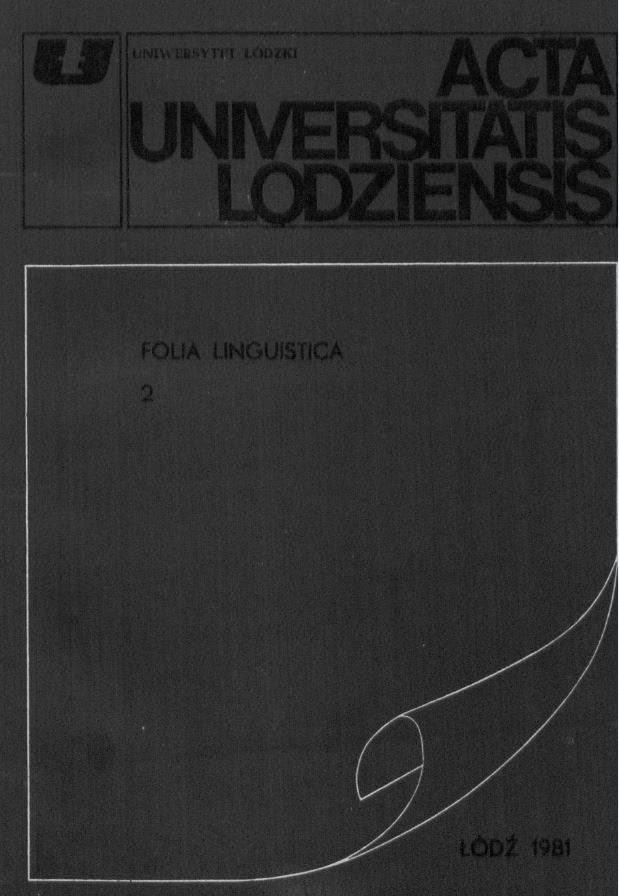Opozycje semantyczne rzeczowników oznaczających osoby we współczesnym języku polskim
Semantic oppositions of personal nouns in contemporary Polish
Author(s): Jan MączyńskiSubject(s): Lexis, Semantics
Published by: Wydawnictwo Uniwersytetu Łódzkiego
Summary/Abstract: Polish personal nouns demonstrate not only grammatical features of gender (selective gender) but also the -sex of the designation (natural reference gender). Only masculine and feminine nouns have natural gender. These nouns form oppositions. We distinguish between privative oppositions: dyrektor : dyrektorka, grubas : grubaska, and equipollent oppositions: murzyn î murzynka, blondyn : blondynka, kelner : kelnerka. There are certain correlations between them. In privative oppositions masculine nouns are the non-distinctive elements. They frequently play the role of indexes in both oppositional reference genders. It refers, first of all, to names of jobs, positions, titles end to the use in plural. The use of masculine nouns as the index of both genders (i.e. masculine and feminine) gives such homonims as: dyrektor 1 : dyrektor 2. In such homonym pairs the-lexeme dyrektor 1 is masculine and dyrektor 2 is feminine derived from dyrektor 1.
Journal: Acta Universitatis Lodziensis. Folia Linguistica
- Issue Year: 1981
- Issue No: 2
- Page Range: 233-242
- Page Count: 10
- Language: Polish

